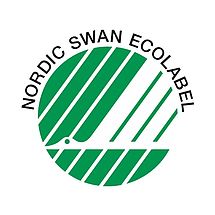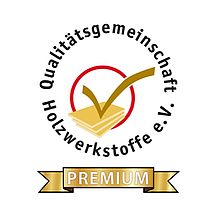WE ARE COMMITTED TO THE UNITED NATIONS GLOBAL COMPACT
Those who rely on wood as a raw material rightly expect an environmentally conscious “green” material. At Pfleiderer we want to do full justice, to this to commodity, therefore been offering an extensive range of low-emission and environmentally friendly products for many years. Sustainability – in addition to ecological, social and economic aspects – as well as the careful use of natural resources are permanent pillars of our corporate philosophy. Consistent circular economy and wood recycling at the highest technological level as well as independent evaluation of our procurement, production and logistics processes ensure that we optimally harmonise qualitative our ecological requirements ensuring that we offer our customers the best possible service, manufacturing and logistics processes as well as a corporate culture of accountability. We ensure that you can use our products with a clear conscience and recommend them to your customers.
Certificates and labels at CORPORATE LEVEL
United nations global compact

Pfleiderer is signatory to the principles of the United Nations Global Compact. The United Nations Global Compact (UNGC) is the best-known initiative at global level for promoting responsible corporate practices. The more than 17,000 members from over 170 countries (as of 2022) undertake to comply with ten principles in the areas of human rights, workers' rights, environmental protection and corruption prevention in all countries in which they operate.
https://www.unglobalcompact.org
Initiative Klimaschutz Holzindustrie

This initiative aims to help make the wood industry climate-friendly and sustainable. Every company that joins the initiative recognises its guidelines, contributes to permanently reducing the CO2 footprint of our industry and, where possible, to sustainably compensating for unavoidable emissions. We are part of the Initiative’s Climate Protection Wood Industry programme.
www.klimaschutzholzindustrie.de/
Certificates and labels at product level
Blue Angel

Environmental label for particularly environmentally friendly products and services, introduced in Germany in 1978. In the case of chipboard, formaldehyde emission is an important criterion for the award of the Blue Angel. For boards which, due to so-called formaldehyde scavengers, have an approx. 50% lower emission than standard boards, the environmental label RAL UZ 76 – Blue Angel is awarded because they are low-emission. The panels are certified by the RAL Institute for the award of this eco-label.
FSC®

The Forest Stewardship Council® (FSC C011773) is a global, non-profit organisation with the purpose of promoting responsible forest management worldwide. FSC defines standards for responsible forest management according to established principles, which are developed and supported by stakeholders from the environmental, social and economic sectors. For more information, please visit www.fsc.org.
PEFC
PEFC is the largest institution for ensuring sustainable forest management through an independent certification system. Wood and wood products with the PEFC label are proven to originate from ecologically, economically and socially sustainable forestry. PEFC is the most important forest certification system in Germany: With 7.7 million hectares of certified forest area, about two thirds of Germany’s forests are already PEFC certified. PEFC is a transparent and independent system for ensuring sustainable forest management and thus a kind of global “forest inspection”. The acronym PEFC stands for “Programme for the Endorsement of Forest Certification Schemes”. (PEFC/04-32-0828)
Cradle to Cradle (C2C)
Cradle to Cradle (C2C) is an approach to a continuous and consistent recycling management. The principle, which can also be perceived as a philosophy or system, was designed by the German chemist Michael Braungart and the US-American architect William McDonough in the late 1990s. The C2C certification (Cradle to Cradle Certified Product Standard) for recycling management systems has been awarded by the non-profit organisation Cradle to Cradle Products Innovation Institute based in San Francisco since 2010. Products are evaluated in terms of material health, recyclability, use of renewable energies, responsible use of water and social justice.
Nordic Swan

The Nordic Ecolabel, also known as the Nordic Swan or in Scandinavia “The Swan” for short, is an eco-label awarded by the Nordic Council of Ministers. It was launched in 1989 and now covers 63 product groups. It is the official eco-label of the Nordic countries. The Nordic Swan is a Type I eco-label (ISO 14024), as a statement about the environmental performance of products compared to competing products is made by independent third parties. Every three to five years, the respective criteria are reviewed and revised if necessary.
Qualitätsgemeinschaft Holzwerkstoffe e.V.

The Quality Association for Wood-based Materials (QG HWS) awards the “Wood-based Materials Quality Label” to products from manufacturers of chipboard and fibreboard, plywood and woodpolymer materials which meet the high standards of the Community. On behalf of a notified body accredited and notified according to the Building Products Ordinance (BauPVO), QG HWS carries out selected tests and inspections in the field of building inspection according to the procedure defined for this purpose (QM system), in particular the monitoring of the factory production control according to the harmonised standard DIN EN 13986 in the currently valid version. The quality and testing regulations laid down by QG HWS are binding for its members. They are continuously controlled by the manufacturers and by external test centres. This ensures that the products monitored by QG HWS are of good quality, durable and safe and do not endanger the health of people and the environment.
Émissons dans l'air intérieur
Building materials and products with verified emissions can make an important contribution to good indoor air quality. The French-developed A+ to C emissions label is used to indicate the emissions of building products and materials used in interior design. A+ indicates particularly low emissions, while C indicates compliance with legal requirements, but with higher emission values.
TSCA
The Toxic Substances Control Act (TSCA) is an important standard in US chemicals regulation. The regulation is implemented by the Environmental Protection Agency (EPA), the US environmental protection agency.
TSCA Title VI requires regulated wood-based products (particleboard and fiberboard) to be tested and certified by an EPA-recognized third-party certifier (TPC) to ensure compliance with formaldehyde emission standards. The regulation also addresses the documentation, reporting, and labeling requirements for wood-based products manufacturers.
BUILDING CERTIFICATES
DGNB Navigator
The DGNB Navigator is a construction product platform that brings together information from manufacturers on product-specific sustainability aspects with the demand from planners and architects. In addition, it forms the bridge to DGNB certification.
U.S. Green Building Council
The international LEED (Leadership in Energy and Environmental Design) certification system for green buildings was developed by the US Green Building Council. It assesses the sustainability of buildings based on criteria such as energy efficiency, water conservation, air quality, materials and resource efficiency. LEED-certified buildings are considered environmentally friendly, resource-efficient and beneficial to the health of the people who use them.
Certifikát SHI
Products with this certificate have been tested for harmful substances and are sustainable. They are recommended by the Sentinel Haus Institut. Healthy construction and modernization are carried out according to transparent and comprehensible criteria thanks to the Sentinel Haus concept.
Eco Product Insights
Further Operational Standards
Our certifications
Defined processes ensure transparency and clarity. Only in this way can we work with the greatest possible care and responsibility. The certifications we have already achieved help us to continuously improve. Here you will find an overview of our current certificates:
| ISO 9001 | ISO 14001 | ISO 50001 | FSC | PEFC | EfbV | ISO 45001 | |
|---|---|---|---|---|---|---|---|
| Arnsberg | ♦ | ♦ | ♦ | ♦ | ♦ | ♦ | |
Baruth | ♦ | ♦ | ♦ | ♦ | ♦ | ♦ | ♦ |
Gütersloh II | ♦ | ♦ | ♦ | ♦ | ♦ | ♦ | ♦ |
Gütersloh III | ♦ | ♦ | ♦ | ♦ | ♦ | ♦ | |
Leutkirch | ♦ | ♦ | ♦ | ♦ | ♦ | ♦ | |
Neumarkt II | ♦ | ♦ | ♦ | ♦ | ♦ | ♦ | |
Neumarkt III | ♦ | ♦ | ♦ | ♦ | ♦ | ♦ | ♦ |
Read more about sustainability at Pfleiderer
These topics may also be of interest to you:


